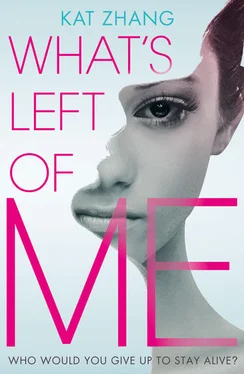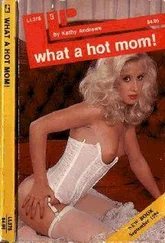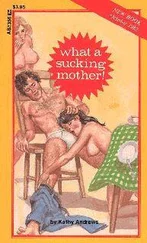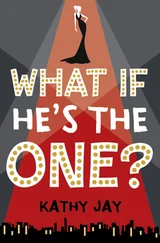The water barely reached our ankles now, but there was no saving our shirt, though Addie hurried to wring it out. No one was paying attention anyway; everyone stared openmouthed at the flooded exhibit hall. This was one of the largest rooms in the museum, filled with artifacts from Revolutionary times encased under glass and period paintings on the walls. Now it was also filled with several inches of murky water.
The guide whipped out a walkie-talkie and sputtered something. Ms. Stimp tried her best to usher everyone back into the room we’d just left, which was connected by a low step and remained dry—for now. Wherever the water was coming from, it was getting worse, spilling over the ground, soaking people’s socks—dirty water that would surely stain the white walls.
The lights flickered. People screamed—some sounding genuinely terrified, others with almost a laugh in it, like this was more excitement than they could have hoped for.
“It’s those pipes,” the guide growled under her breath, stalking past us. Her cheeks were flushed, her eyes so bright they seemed almost wild. “How many times have we said to get those pipes fixed?” She clipped her walkie-talkie back to her skirt, then raised her voice and said, “Please, if everyone would just come back around through this room—”
The lights went out, cloaking everything in darkness. This time, they didn’t come back on. But something else did—the sprinklers. And with them, the earsplitting blare of an alarm. Addie clapped our hands over our ears as water sprayed down into our hair and ran over our face. Somewhere in the museum, something had caught on fire.
It took nearly fifteen minutes to get everyone back onto the bus. There weren’t too many other visitors at the museum on a hot Friday afternoon, but enough to form a sizable crowd as everyone poured out of the museum doors, confused and still clutching ticket stubs in their hands, mothers herding small children before them as they went, men with dark stains on their pant legs where they’d dragged in the water. Some of them were soaked through. All of them were complaining or demanding answers or refunds or just staring dumbly at the museum.
“Electrical fire,” I heard a woman say as Addie made our way back to the bus. “We could have all gotten electrocuted!”
By the time we got back to the school, our blouse was still damp and no longer completely white, but talk had turned from the museum flood to the end-of-year dance, still more than a month away. And when Ms. Stimp, frazzled and irritated, turned off the lights in the classroom and popped in a video, a quarter of our class went surreptitiously to sleep, even though we were supposed to be taking notes.
I said as Addie stared blankly at the screen. Bessimir was proud of so many things in that museum—those paintings; sabers and revolvers salvaged from the Revolution; an authentic war poster from the beginning of the Great Wars, dated the year of the first attack on American soil. It urged citizens to report all suspicions of hybrid activity. Teachers didn’t mention it in class, but I could imagine the finger-pointing that must have occurred. People back then couldn’t have been so different from people today.
Addie said.
Addie sighed, resting our chin in one hand and doodling the girl in front of us—who slept with her mouth half-open—with the other. It wasn’t like we needed to actually watch the movie to fill out a page or two of notes. We’d covered the Great Wars of the twentieth century so many times we could recite the major battles, rattle off the casualty counts, quote the speeches our president had given as we’d fought off the attempts at invasion. Eventually, we’d proven too strong for them, of course, and their attention had turned back to their own continents, chaotic and ravished. That was what war did. What hybrids did. What they were doing, even now.
Addie said finally.
On television, an airplane dropped bombs on an indistinct city. The boy sitting beside us yawned, his eyes drooping shut. We didn’t have much footage of the latter part of the Wars, since they’d happened so far away, but what we did have was shown over and over again until I wanted to scream. I could only imagine what we’d be subjected to if there had been such a thing as TV news during the invasions a few decades earlier.
Addie said.
I shoved my emotions away from Addie, shielding her from my frustration. I said.
We watched as fire swept across the chaos-stricken city. Officially, the last Great War had ended when Addie and I were a baby, but the hybrids occupying the rest of the world had never stopped fighting among themselves. How could they? Addie and I had enough arguments, and we didn’t even share control. How could a society founded on two souls in each body ever be at peace? The individuals making up the country weren’t even at peace with themselves, and that led to all sorts of problems—constant frustration, lashing out at others, and, for the weaker-minded, eventual insanity. I could see the bleak prognosis on the pamphlets at the doctors’ offices, printed in boldface.
So I understood why the Revolutionary leaders had founded the Americas as a hybrid-free country, why they’d worked so hard to eradicate the existing hybrids of the time, so they could start clean and fresh and untainted. I could even understand, in the most rational parts of me, why people like Addie and me couldn’t, on the whole, be allowed free rein. But understanding a thing and accepting it are so very different things.
Addie dashed off some halfhearted notes as the movie came to a close and the bell rang. Normally I would help her, adding the facts I remembered to hers, but I was hardly in the mood now. We were out the door before our paper reached the front of the room.
We’d only made it a few steps down the hall when a second person shot out of the classroom and called Addie’s name.
“What is it, Hally?” Addie said, holding back a sigh.
To my surprise, Hally’s smile slipped a notch, but only for a moment. Enough, though, for me to say
Addie said.
“Want to come over for dinner?” Hally said.
Addie stared. The hall was filling with people, but neither she nor Hally moved from their spots in the middle of the corridor.
“My parents are going out,” Hally added after a moment. Her thick hair still wasn’t completely dry, and she wrapped a finger around a curl. “It’s just going to be my brother and me.” She raised her eyebrows, her smile returning to full force. “I’d rather avoid eating alone with him.”
I said.
“Oh,” Addie said. “Oh, well—I—I can’t.”
I’d never heard Addie turn down an invitation to go to someone’s house before—not without a very good reason. Many of the students at our school had attended classes together since primary; entering late had meant hitting a lot of walls when trying to make friends. Everyone already had a place, a group, a seat at the lunch table, and Addie had learned to grab on to what fingerholds she could. But Hally Mullan just plain being Hally Mullan was, I guess, enough reason to decline any offer of friendship.
“It’s my shirt,” Addie said, looking down at the stain in the white fabric. “I’ve got to get home before my parents and wash it. If they—” If they see it, they’ll ask what happened. And where. And then that look will fall over their eyes, the one that snuck onto their faces every time they saw another news report about a hybrid being discovered somewhere, or a reminder to watch your neighbors, to be forever on the lookout for the hidden enemy. It made our gut wrench. Made us want to leave the room.
Читать дальше












